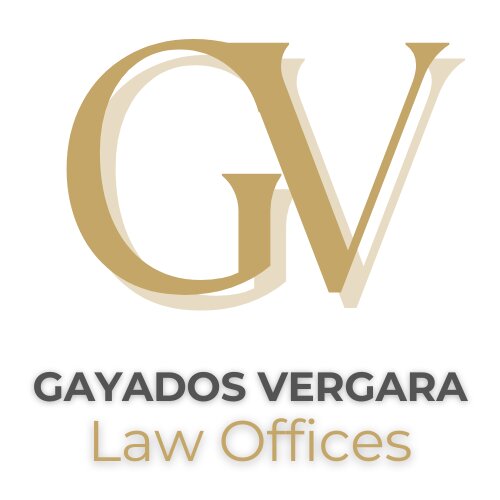Best Whistleblower & Qui Tam Lawyers in Pasay
Share your needs with us, get contacted by law firms.
Free. Takes 2 min.
List of the best lawyers in Pasay, Philippines
About Whistleblower & Qui Tam Law in Pasay, Philippines:
Whistleblower & Qui Tam laws in Pasay, Philippines are designed to protect individuals who report illegal or unethical activities within their organizations. These laws also provide a way for whistleblowers to receive compensation for their actions. Qui Tam refers to cases where a private individual sues on behalf of the government for fraudulent practices.
Why You May Need a Lawyer:
You may need a lawyer in Whistleblower & Qui Tam cases to ensure that your rights are protected, to navigate the complex legal process, and to maximize your chances of receiving compensation. A lawyer can also help you gather evidence, file the necessary paperwork, and represent you in court if needed.
Local Laws Overview:
In Pasay, Philippines, whistleblowers are protected under the Whistleblower Protection Act of 2010. This law prohibits retaliation against whistleblowers and provides avenues for reporting illegal activities. Qui Tam cases are governed by the Philippine False Claims Act, which allows individuals to file lawsuits on behalf of the government for fraud against the government.
Frequently Asked Questions:
1. What is the difference between a whistleblower and a Qui Tam case?
A whistleblower case involves reporting illegal activities within an organization, while a Qui Tam case involves filing a lawsuit on behalf of the government for fraudulent practices.
2. Can I be fired for being a whistleblower in Pasay, Philippines?
No, the Whistleblower Protection Act of 2010 prohibits retaliation against whistleblowers in Pasay, Philippines.
3. How do I report illegal activities as a whistleblower?
You can report illegal activities to the appropriate government agency or to your employer's internal compliance department.
4. What compensation can I receive as a whistleblower in Pasay, Philippines?
Whistleblowers may be entitled to compensation for damages suffered as a result of whistleblowing, as well as a percentage of any funds recovered as a result of their report.
5. How do I file a Qui Tam lawsuit in Pasay, Philippines?
You will need to file a complaint with the court under seal and provide evidence of the fraudulent activities.
6. Can I remain anonymous as a whistleblower?
Yes, in some cases, whistleblowers can remain anonymous to protect their identity.
7. How long do I have to file a Qui Tam lawsuit in Pasay, Philippines?
Qui Tam lawsuits have a statute of limitations, so it is important to file your lawsuit within the specified time frame.
8. What protections are available for Qui Tam whistleblowers?
Qui Tam whistleblowers are protected from retaliation under the Philippine False Claims Act.
9. Can I file a Qui Tam lawsuit if I am not a Filipino citizen?
Yes, non-Filipino citizens can file Qui Tam lawsuits in Pasay, Philippines.
10. How can a lawyer help me with my Whistleblower or Qui Tam case?
A lawyer can provide legal advice, represent you in court, help you gather evidence, and ensure that your rights are protected throughout the legal process.
Additional Resources:
For more information on Whistleblower & Qui Tam laws in Pasay, Philippines, you can contact the Department of Justice or seek assistance from the Public Attorneys Office.
Next Steps:
If you believe you have witnessed illegal activities and are considering blowing the whistle or filing a Qui Tam lawsuit in Pasay, Philippines, it is important to seek legal advice from a qualified lawyer to guide you through the process and protect your rights.
Lawzana helps you find the best lawyers and law firms in Pasay through a curated and pre-screened list of qualified legal professionals. Our platform offers rankings and detailed profiles of attorneys and law firms, allowing you to compare based on practice areas, including Whistleblower & Qui Tam, experience, and client feedback.
Each profile includes a description of the firm's areas of practice, client reviews, team members and partners, year of establishment, spoken languages, office locations, contact information, social media presence, and any published articles or resources. Most firms on our platform speak English and are experienced in both local and international legal matters.
Get a quote from top-rated law firms in Pasay, Philippines — quickly, securely, and without unnecessary hassle.
Disclaimer:
The information provided on this page is for general informational purposes only and does not constitute legal advice. While we strive to ensure the accuracy and relevance of the content, legal information may change over time, and interpretations of the law can vary. You should always consult with a qualified legal professional for advice specific to your situation.
We disclaim all liability for actions taken or not taken based on the content of this page. If you believe any information is incorrect or outdated, please contact us, and we will review and update it where appropriate.








